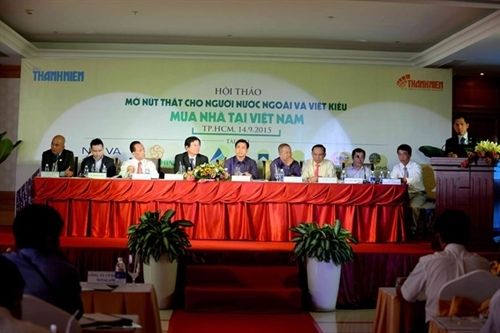Draft decree specifies resolution of disputes through commercial conciliation
Professional commercial conciliation might soon become a new and effective way for settling disputes, in addition to traditional ones like litigation and arbitration, if a draft decree recently unveiled by the Ministry of Justice is approved.
Under the 38-article draft, commercial conciliation may be applied to settle all disputes arising from commercial activities, disputes to which at least one party is involved in commercial activities, and other disputes which may be resolved through conciliation as prescribed by law.
.

.
The only condition for a commercial dispute to be eligible for resolution through conciliation is disputing parties so agree. Parties to a dispute may reach an agreement to bring their case to conciliation at any time during the dispute process, even before the dispute arises.
After agreeing to bring their case to a conciliation service provider, parties to a dispute would decide whether to apply conciliation rules set by the conciliation service provider or follow conciliation procedures devised by themselves.
During the conciliation process, the disputing parties would be allowed to select conciliators, and place and time for conciliation. They might request suspension or termination of conciliation and disclosure or non-disclosure of information on the conciliation. They would also be entitled to agree or refuse to conciliate with one another.
The conciliation would be considered successful if disputing parties come to an agreement on the settlement of part or the whole of their dispute. Then, one of the parties may request a court to recognize the conciliation agreement. After being recognized by a court, the conciliation agreement would be enforced like a court judgment.
The draft decree also specifies conditions and criteria on commercial conciliation institutions and commercial conciliators.
According to the draft, foreign commercial conciliation institutions would be licensed to set up their branches or representative offices in Vietnam. Branches of foreign conciliation institutions might provide conciliation services to local clients. Meanwhile, representative offices would be permitted to conduct activities to seek and promote opportunities for development of the conciliation service in Vietnam.
Source: vietnamlawmagazine
